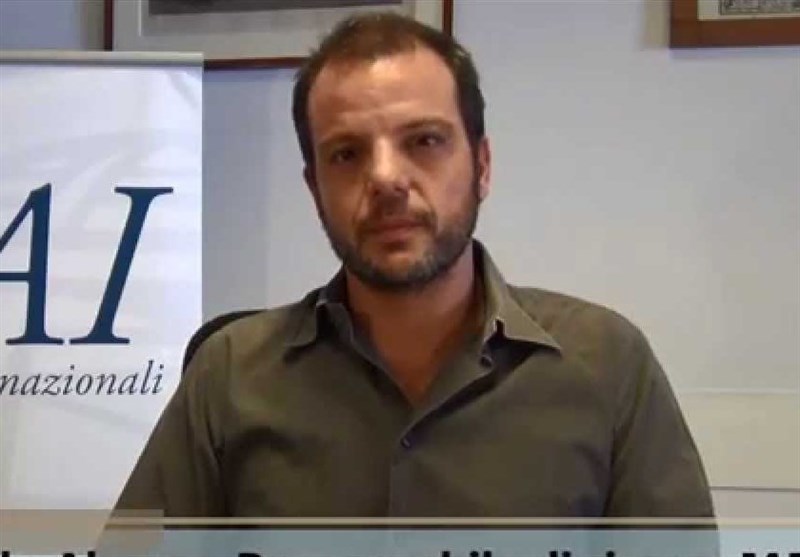EU's INSTEX Still Months Away from Being Fully Operational: Italian Analyst

"On the positive side, Instex is the first tangible sign
that the E3/EU are serious about keeping the JCPOA in place notwithstanding the
US withdrawal. It is very significant that the mechanism has been based in
France, will be run by a German director and provided with financial guarantees
by the E3. This is as heavy a political investment as it gets. On the negative
side, Instex has been registered but is still months away from being fully
operational, and key technical issues still need to be defined,” Riccardo Alcaro
told Basirat.
Riccardo Alcaro was a nonresident fellow in the Center on the United States and
Europe. He is an expert in transatlantic political and security relations with a
focus on US-European cooperation in Europe’s neighboring regions, including the
Middle East and North Africa, Iran and the Persian Gulf, the Sahel, Eastern
Europe, and Russia.
Following is the text of the interview:
Basirat: Late on Thursday, Britain, France and Germany issued a joint statement
on the creation of a new trading system called the Instrument in Support of
Trade Exchanges (INSTEX) that will allow trade between the EU and Iran without
relying on direct financial transactions. What do you think about the new
mechanism?
Alcaro: On the positive side, Instex is the first tangible sign that the E3/EU
are serious about keeping the JCPOA in place notwithstanding the US withdrawal.
It is very significant that the mechanism has been based in France, will be run
by a German director and provided with financial guarantees by the E3. This is
as heavy a political investment as it gets. On the negative side, Instex has
been registered but is still months away from being fully operational, and key
technical issues still need to be defined.
Basirat: The US State Department reacted to the creation of the system, warning,
"As the president (Donald Trump) has made clear, entities that continue to
engage in sanctionable activity involving Iran risk severe consequences that
could include losing access to the US financial system and the ability to do
business with the United States or US companies”. What is your take on this?
Alcaro: The E3/EU have taken special care in designing a mechanism that would
facilitate trade in goods not sanctioned by the USA, such as food, meds and
medical equipment. This should allow the Europeans and the Americans to get an
agreement that at least this kind of trade will be risk-free for EU companies.
However, clearly, this is not enough for the Iranians. Trade in other
non-sanctioned goods - machinery for instance - should be also allowed, and
eventually also sanctioned goods such as oil. The E3/EU have said that Instex is
open to include trade in more goods in the future, but then again it’s uncertain
what goods and when. So a lot has yet to fall in place before Instex starts
delivering. This said, it’s undeniable that this is a powerful political gesture
by the Europeans, who are signaling that they want to do what they can to save
the JCPOA within the limits they believe they are in. Whether such limits are
real or perceived it’s a matter of dispute.
Basirat: Long anticipated, Thursday’s EU announcement marks the most concrete
action Europe has taken to thwart Washington sanctions after the US pullout of
the 2015 nuclear deal last May. How much do you think this could facilitate
Iran-EU trade despite US opposition?
Alcaro: I’ve answered this question already above. I think that even if Instex
allows humanitarian trade to resume Iran’s population would greatly benefit from
it. On a broader strategic level, I understand that Iran’s expectations are
higher, and understandably so. Yet I believe the Iranians have now something
they could point to and make the case that the JCPOA is still in their interest
because by keeping abiding by it, they will force the Europeans to put real
flesh on the bones, eg use Instex to trade with Iran. That would allow Iran to
play on different tables - Russia, China, the Asian countries (eg India) and
Europe - while keeping the moral high ground, avoid isolation and reduce the
risk of a military strike against the nuclear facilities by US and/or Israel.
















